As you get less sleep, it’s tempting to reach for an energy or caffeinated drink to stay awake during the day. Believe it or not, consuming these types of drinks to combat sleepiness, can lead to a vicious cycle.
Yes, caffeine will help you stay awake, but it can easily take up to eight hours to wear off. This means it can also reduce your sleep time and decrease the quality of your sleep.
So, how do can you stay awake naturally?
In one well-known study, Robert Thayer, PhD, a professor at California State University, Long Beach, studied whether people were more energized by eating a candy bar or taking a brisk 10-minute walk.
Though the candy bar provided a quick energy boost, participants were actually more tired and had less energy an hour later. The 10-minute walk increased energy for two hours. That’s because walking pumps oxygen through your veins, brain, and muscles.
If you work at a desk, get up frequently for short walks. At meal breaks, walk to a restaurant or, if you bring your lunch, head for a nice spot to eat it. Whether you take a walk outside or just in the building where you work, it will make you feel more alert and refreshed.
There are two things to remember about naps: Don’t take more than one and don’t take it too close to your bedtime.
“Nap between five and 25 minutes,” says Barry Krakow, MD, author of Sound Sleep, Sound Mind: Seven Keys to Sleeping Through the Night. It’s best to nap about six or seven hours before you would normally go to bed. If you must take a late nap close to bedtime, make it a short one.
Napping on the job can be touchy. If you need to nap at work, do it during your break and use a vibrating alarm clock, if necessary, to make sure it doesn’t spill over into your work time.
Sleeping at your desk is usually not a good idea, but many companies now provide nap rooms for employees.
“If you can’t nap, even resting quietly with your eyes closed for 10 minutes or so will help,” says Allison T. Siebern, PhD, a fellow at the Stanford University Sleep Medicine Center in Redwood City, Calif.
Continuous fixation on a computer screen can cause eyestrain and worsen sleepiness and fatigue.
Look away from the screen for a few minutes periodically to relax your eyes.
Sugary snacks give you a quick energy boost followed by the sugar “lows,” when low blood sugar produces mental fogginess and lethargy.
Snacks such as these will provide better overall energy in the long run:
If you’re fading fast, engaging in conversation can get your mind moving again.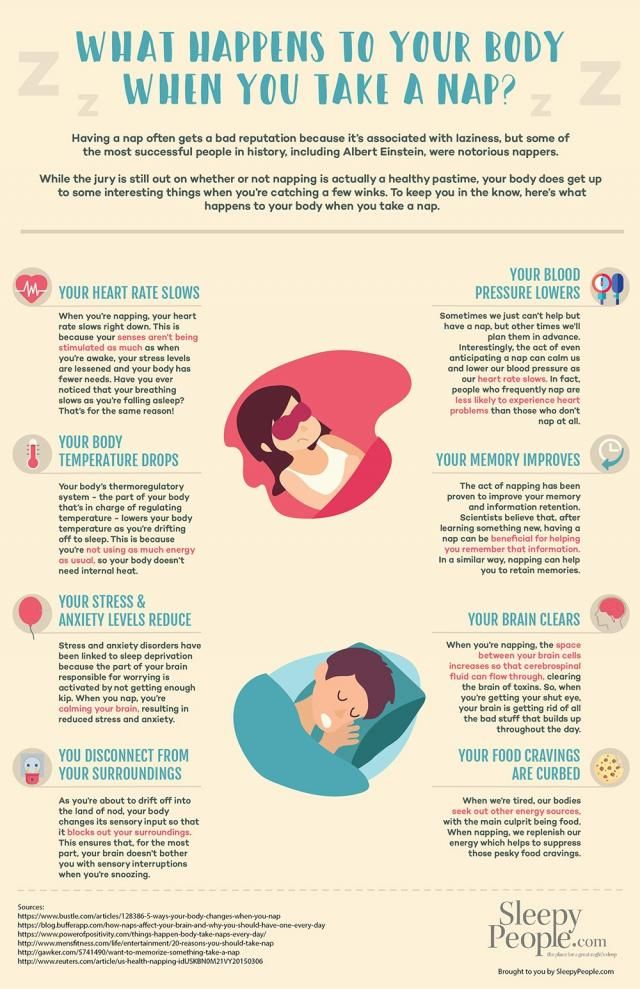 “Talk to a colleague about a business idea, politics, or religion,” says Krakow, medical director of Maimonides Sleep Arts and Sciences, Ltd. in Albuquerque, N.M. “It’s a very strong behavioral stimulator — especially when it’s a conversation about politics.”
“Talk to a colleague about a business idea, politics, or religion,” says Krakow, medical director of Maimonides Sleep Arts and Sciences, Ltd. in Albuquerque, N.M. “It’s a very strong behavioral stimulator — especially when it’s a conversation about politics.”
Environments with dim lighting aggravate fatigue. Studies have shown that exposure to bright light can reduce sleepiness and increase alertness. Try increasing the intensity of your light source at work.
Deep breathing raises blood oxygen levels in the body. This slows your heart rate, lowers blood pressure, and improves circulation, ultimately aiding mental performance and energy.
The idea of deep-breathing exercises is to inhale to the abdomen, not the chest. You can do them at your desk. Sitting up straight, try this exercise up to 10 times:
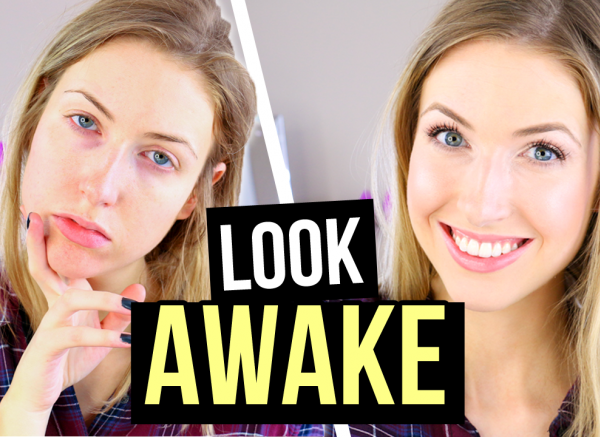 Your chest should not move.
Your chest should not move. Another technique, called stimulating breath, is used in yoga for a quick energy boost and increased alertness:
“Driving while sleepy is as dangerous as driving under the influence of alcohol,” says Siebern. Common tricks such as opening the windows and turning on loud music won’t keep you awake for very long behind the wheel. “Have someone else drive or pull off the road and take a nap until you’re no longer sleepy,” Siebern says.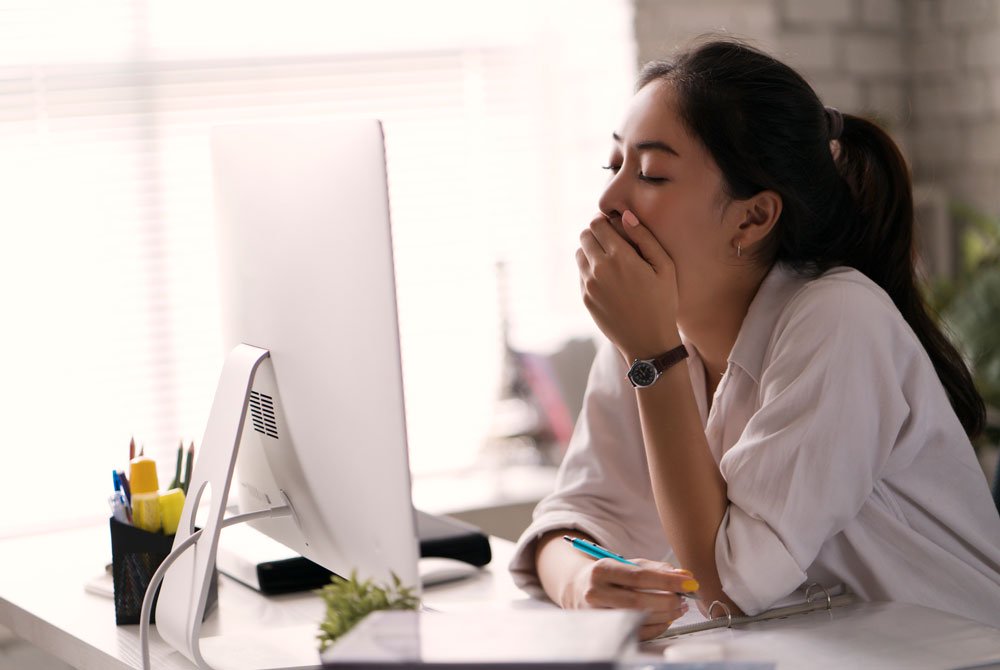
If you’re on an extended trip, change drivers often. Stop at least every two hours to take a walk and get some fresh air.
In 2004 Finnish researchers who studied people working 12-hour night shifts found that monotonous work is as harmful as sleep loss for alertness.
At work or home, try to reserve more stimulating tasks for your sleepy times. Or switch to more engaging work responsibilities when you feel yourself nodding off.
Dehydration can cause fatigue. Make sure you drink plenty of fluids and eat foods high in water such as fruits and vegetables.
Our circadian rhythms, which regulate our sleep-wake cycle, are influenced by daylight. Try to spend at least 30 minutes a day outside in natural sunlight. (Sleep experts recommend an hour of morning sunlight a day if you have insomnia. ) Even a step outside for a breath of fresh air will revive your senses.
) Even a step outside for a breath of fresh air will revive your senses.
In a 2006 analysis of 70 studies involving more than 6,800 people, University of Georgia researchers found that exercise was more effective in increasing energy and reducing daytime fatigue than some medications used to treat sleep problems.
Regular exercise also improves quality of sleep. Try to exercise 30 minutes a day.
If you decide to exercise hard some days, your energy level may drop for a bit and then surge for a few hours.
Eating a meal that contains both protein and carbohydrates within two hours after a heavy workout will lessen the initial energy loss. Be sure to finish your workout a few hours before bedtime so you are not energized when you try to sleep.
The team at Salem Health is here for you. Call our Sleep Center providers today!
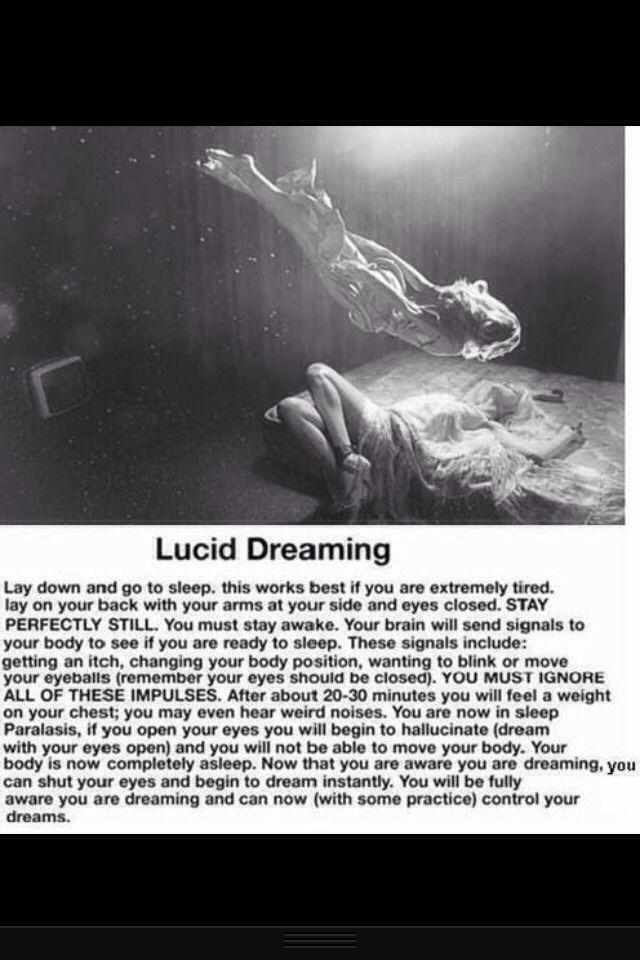 Special Enrollment See all topics Shop for Medicare plans Member Guide Find a Doctor Log in to myCigna
Special Enrollment See all topics Shop for Medicare plans Member Guide Find a Doctor Log in to myCigna
HomeKnowledge CenterHow to Stay Awake at Work
A sleepless night can impact your work and personal life. How do you stay productive the day after a sleepless night?
Even though you may have had a sleepless night, you may still need to have a productive day. Learning how to keep yourself awake following a night of lost sleep, requires you to learn which of the following methods your body best responds to.1
Good night, sleep tight!
Consider your usual night’s sleep: do you sleep like a rock, or do you wake up throughout the night? If you wake up a lot, make sure your sleeping environment is free of lights, sounds and changes in temperature. And limit use of smartphones, computers, and the TV before bedtime Digital devices like these can stimulate your mind and keep you awake instead of asleep.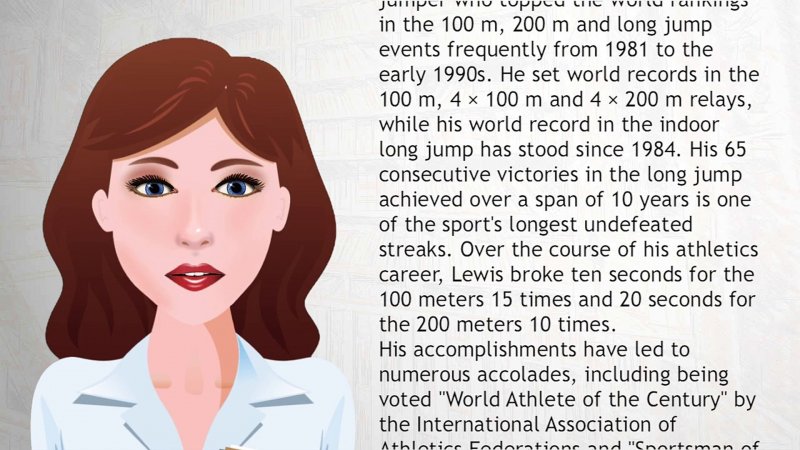
Stay hydrated
While coffee or tea can help jumpstart your day, too much can dehydrate you or make you restless. A good way to stay awake without caffeine is to drink low or no calorie fluids, such as water or herbal tea. Fluids help your circulatory system and get your blood flowing. If you have a headache from too much caffeine, fluids can help relieve it.
Splash your face with cold water
A splash of cold water over your face will draw your circulation upward, toward your head, temporarily renewing your energy, making you feel more awake.
Reduce your sugar intake
Eating sugar is often thought to be one of the best ways to stay awake. But it’s actually best to avoid sugar when you’re tired. It causes blood sugar spikes – which is a spurt of high energy followed by very low energy, which can leave you feeling sleepy.
Interrupt your work routine with regular breaks
If you’re experimenting with how to stay awake at work, try interrupting boring or uninteresting tasks by working for 25 minutes at a time, followed by a 5-minute break. The variety will help you stay awake longer, and may make you more productive. Get up and move around during your break to get your blood flowing.
The variety will help you stay awake longer, and may make you more productive. Get up and move around during your break to get your blood flowing.
Connect with a friend
One of the best ways to stay awake is to do so with others. Focus your mind on something else by talking with a friend or co-worker.
Keep your space cool
A warm room can make you tired, and a cool room does the opposite! Crack a window for a refreshing breeze to keep your blood flowing and your energy level up.
Put on some tunes
Use music to help wake up your senses. It can also distract you and take your mind off feeling tired.
Take a walk
A walk can help bring blood flow to your muscles and wake them up. A change of scenery is also likely to reduce fatigue by inspiring new ideas and even sparking creativity.
Massage
You can give yourself a jolt of energy by lightly massaging select pressure points on your body. Key areas include: the back of your neck, between your thumb and index finger, behind your knees and just below the balls of your feet.
When you’re at work and need to stay awake, give these tips a try. Make sure to aim for quality rest, as a general rule. If your fatigue and sleeplessness continue talk to your health care provider for guidance.
Back to Knowledge Center
110 Tips to Stay Awake at Work without Coffee, Health Plus, March 29, 2021, https://www.mountelizabeth.com.sg/healthplus/article/10-tips-to-stay-awake-at-work-without-coffee
This article is general health information and not medical advice or services.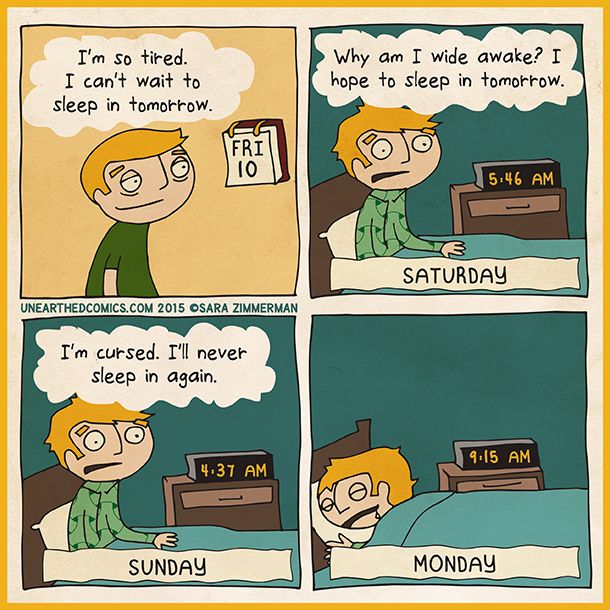 You should consult your doctor for medical advice or services, including seeking advice prior to undertaking a new diet or exercise program.
You should consult your doctor for medical advice or services, including seeking advice prior to undertaking a new diet or exercise program.
Komsomolskaya Pravda
Search results during the day
Photo: GLOBAL LOOK PRESS
It is still dark at 8 am. Every morning you think, probably, the alarm clock is broken - in the middle of the night it rings. Getting used to the dark winter rise is difficult, because our body “wakes up” from the light, from the sun. In addition, we sleep little, do not get enough sleep, we want to do everything in the world, but there is not enough time for rest. How to wake yourself up if you feel tired and sleepy during the day?
1. The magic of daylight
Natural lighting is a great help to the body that cannot wake up. After all, in daylight, melatonin, the hormone that causes sleep, ceases to be produced.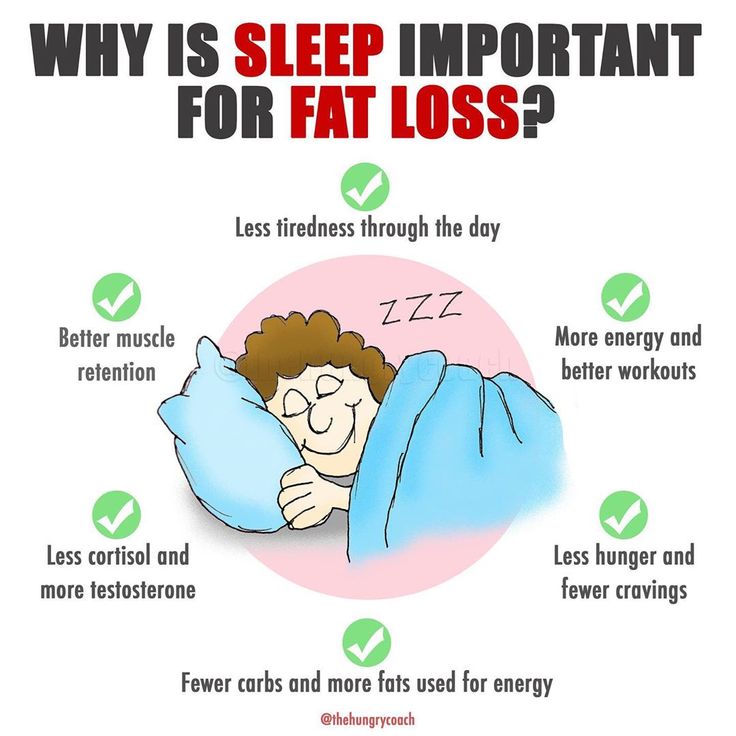 Natural light wakes up and improves mood. So open the curtains, go out during the day from the office, from the house to the street - just walk in the daylight. If the sun is shining, catch every ray. In winter, we are especially deficient in vitamin D, and only sunlight in contact with our skin can help produce it.
Natural light wakes up and improves mood. So open the curtains, go out during the day from the office, from the house to the street - just walk in the daylight. If the sun is shining, catch every ray. In winter, we are especially deficient in vitamin D, and only sunlight in contact with our skin can help produce it.
2. More water
When we don't get enough fluid, we become dehydrated, which makes us feel tired and weak. So if you fall asleep on the go, drink more water. But not coffee and sweet sodas, namely simple drinking cool water.
3. Proper food
Food can also put us to sleep and wake us up. To wake up, do not skip breakfast. And for lunch, do not eat fatty foods. Eat often and in small portions, the best option is foods rich in proteins. But it is better to avoid energy drinks and caffeine, they will not only not help, but can only harm, accelerating the work of a sleepy heart.
4. Movement is life
If you sit in one position, you will want to sleep even more.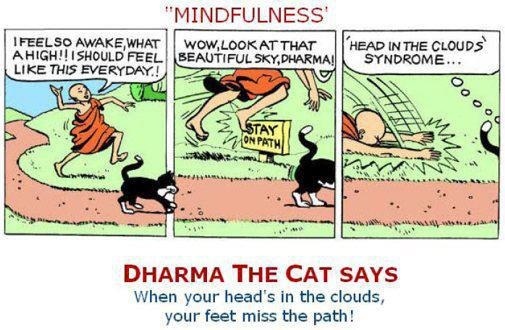 Walk. Get moving. If possible, do exercises, stretch all parts of the body - twist your neck, do side bends, squats, straighten your shoulders. If there is nowhere to do exercises, go for water or walk up the stairs to colleagues on other floors.
Walk. Get moving. If possible, do exercises, stretch all parts of the body - twist your neck, do side bends, squats, straighten your shoulders. If there is nowhere to do exercises, go for water or walk up the stairs to colleagues on other floors.
5. Inhale-exhale
Breathing in the stomach will help you wake up and cheer up. Inhale and exhale through the nose, "inflating" the air, and then "deflate" the stomach. Gradually speed up the inhalations, exhalations and movements of the stomach.
6. Music
Do not listen to calm relaxing music - you will fall asleep completely. You will be shaken by a rhythmic melody, to which you want to dance, and your foot stomps to the beat. Turn up the volume - Latin rhythms, pop music - what is usually played in discos and fitness classes.
7. Breaks
Find an excuse to take a break every 30 minutes. Clean up the desk, go to other rooms (if you are in the office). Get up and stretch your legs and arms. This will help the blood circulation to "keep up", the blood will run faster, and the body will become active.
8. Fresh air
The sleepy brain needs oxygen to be active. If you can, take a walk or just open the window and take a deep breath. If you fall asleep in the car, put on a hat and open the window for a while.
9. Wash your face
Take a shower in the morning. If you can stand under contrast, you are a hero. If not, then pour cold water over at least your legs and arms. Wow! And wake up immediately. During the day, you can simply wash your face with cold water several times - this will wake you up and improve your complexion.
10. Stirlitz's dream
Sometimes you want to sleep so much that you can't fight yourself. Well, don't fight. Find an opportunity and close your eyes - at least for 10-15 minutes. Such a short break will give you a lot of energy!
Age category of the site 18+
The online publication (website) is registered by Roskomnadzor, certificate El No. FS77-80505 dated March 15, 2021.
EDITOR-IN-CHIEF OF THE SITE - KANSK VICTOR FYODOROVICH.
THE AUTHOR OF THE MODERN VERSION OF THE PUBLICATION IS SUNGORKIN VLADIMIR NIKOLAEVICH.
Messages and comments from site readers are posted without preliminary editing. The editors reserve the right to remove them from the site or edit them if the specified messages and comments are an abuse of freedom mass media or violation of other requirements of the law.
JSC Publishing House Komsomolskaya Pravda. TIN: 7714037217 PSRN: 1027739295781 127015, Moscow, Novodmitrovskaya d. 2B, Tel. +7 (495) 777-02-82.
Exclusive rights to materials posted on the website www.kp.ru, in accordance with the legislation of the Russian Federation for the Protection of the Results of Intellectual Activity belong to JSC Publishing House Komsomolskaya Pravda, and do not be used by others in any way form without the written permission of the copyright holder.
Acquiring copyright and contacting the editors: [email protected]
116,754
AntistressPractices how toKnow Yourself
Here are some tips to help mitigate the damage caused by lack of sleep. It is most important to get enough sleep the next night so that sleep deprivation remains the exception rather than becoming a regular occurrence.
Lack of sleep interferes with normal hunger. Without sleep, we often feel hungry all day, and if we start to abuse fast food and other unhealthy foods, it will be difficult to stop. Stay away from sweets and hamburgers and start your day with a healthy breakfast. “Foods rich in protein will give you energy for the whole day,” advises nutritionist Megan Faletra.
When you feel sleepy, do not sit in a dark room. “Bright light can wake you up and make you feel better,” explains Dr. Katie Goldstein of the Michigan Sleep Disorders Center. If the weather is sunny, take a walk outside and turn on as many lights as possible at home or in the office.
“Of course, when we haven't had enough sleep, we want to think about exercise last. But even a few simple exercises will help you cheer up, ”says clinical psychologist Courtney Bancroft, a specialist in the treatment of insomnia and sleep disorders. However, do not overdo it: fitness trainers do not recommend resorting to training if you did not manage to get enough sleep. Limit charging.
“Breathing exercises are just as energizing as exercise,” adds Courtney Bancroth. Here are a couple of simple options:
Do not stay warm all the time, this will make you want to sleep even more. Bancroft recommends taking a cold shower, turning on the air conditioner, or running your hands under cold water from time to time.
"After a sleepless night, try not to sleep at all during the day, then it will be easier for you to fall asleep the next night," Bancroft advises. If the urge to take a nap becomes irresistible, you can lie down for a while - but no more than 45 minutes.
It is advisable to do this no later than two or three in the afternoon to give the body an opportunity to restore normal circadian rhythms (biological clock). Otherwise, there is a risk that you will toss and turn in bed the next night, trying to sleep.
Stay hydrated or you will feel even more tired.